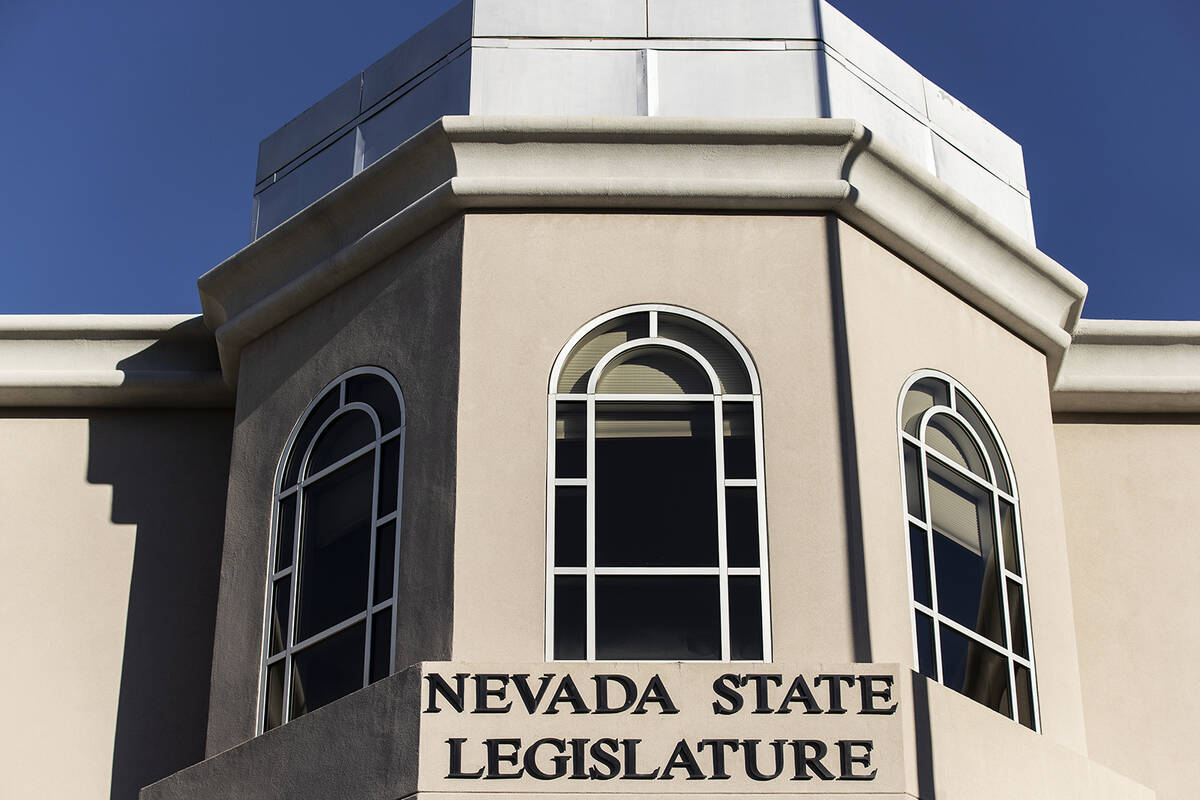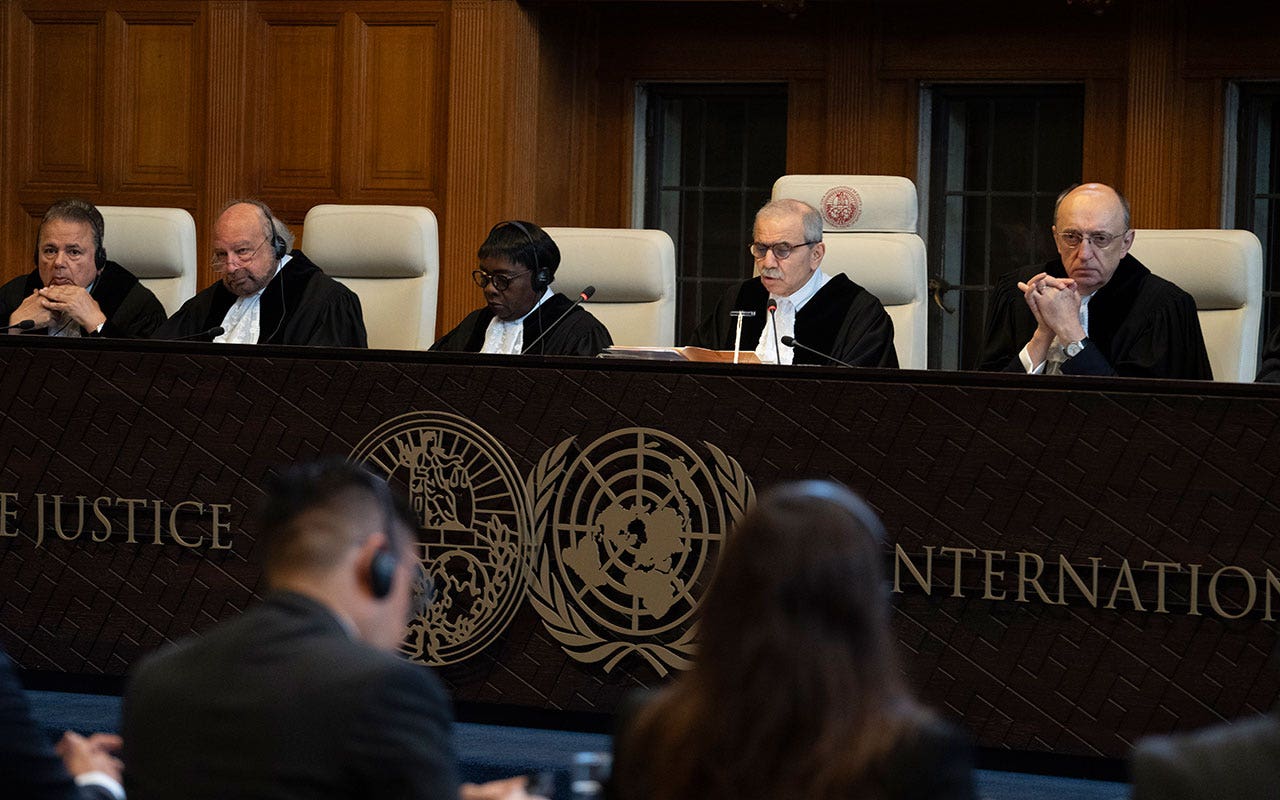Nevada
Election bills advance as Legislature deadline approaches

CARSON CITY — The Nevada Legislature has taken the first step toward amending the state constitution to lend the state’s Electoral College votes to whomever wins the popular vote in presidential elections.
Assembly Joint Resolution 6, approved by the state Senate on Thursday, would add Nevada to the list of 15 states and the District of Columbia that have already signed on. The goal: Avoid a repeat of the elections of 2000 and 2016, in which the Democratic candidate who won the most popular votes still lost in the Electoral College.
The resolution — which passed on party-line votes in both the Assembly and Senate — must be approved again by the 2025 Legislature before voters get the final say in the 2026 general election.
Also on Thursday:
— The Assembly unanimously approved Senate Bill 406, which would make it a crime to threaten, harass or intimidate election workers with the intent to interfere with their work. The bill was also amended to prohibit the attorney general, state treasurer, secretary of state and controller from raising money before, during and after a legislative session. Previously, only members of the Legislature, the governor and lieutenant governor couldn’t raise money around sessions.
The bill was also approved unanimously by the Senate.
— The Senate unanimously OK’d Assembly Bill 73, which will allow high school students to wear traditional tribal regalia or “objects of religious or cultural significance” at graduation ceremonies. The Assembly also unanimously approved the measure last month.
— The Assembly gave bipartisan approval to a proposed constitutional amendment that would remove higher education regents from the constitution into state statute instead. The Assembly vote on Senate Joint Resolution 7 was 34-7, with several Republicans joining majority Democrats.
The measure will now appear on the 2024 ballot for voter approval. A similar measure was narrowly rejected by voters in 2020 by fewer than 4,000 votes out of more than 1.2 million cast.
Lawmakers also moved dozens of bills out of committee ahead of Friday’s second house passage deadline. Bills that haven’t been exempted or voted out of committee by the deadline will be declared dead.
— Lawmakers on the Senate Legislative Operations and Elections Committee voted unanimously to approve Assembly Bill 286, a bill to require county and city jails to ensure inmates are able to vote using electronic systems or mail ballots. People in jail have not been convicted of a crime and are awaiting trial, or are serving sentences for misdemeanors, so they have not lost their right to vote.
The committee also voted 3-2 to approve Assembly Joint Resolution 5, a measure that would amend the Nevada Constitution by repealing a provision which bars the state from operating a lottery or from selling lottery tickets. Republicans Heidi Seevers Gansert and Lisa Krasner, both of Reno, voted against approving the measure.
The resolution was passed on the Assembly floor in mid-April on a vote of 26-15. If passed in the Senate, the resolution would need to be passed in the next legislative session before being placed on the ballot for voters’ approval in 2026.
— Meanwhile, lawmakers on the Assembly Legislative Operations and Elections Committee voted 12-4 to approve Senate Bill 133, with Republican Assembly members Jill Dickman, R-Sparks; Brian Hibbetts, R-Las Vegas; Rich DeLong, R-Reno; and Richard McArthur, R-Las Vegas, voting no.
— Assembly Bill 220, legislation that would give the Southern Nevada Water Authority power to limit residential water use, was approved unanimously by lawmakers on the Senate Natural Resources Committee. It would cover most of the costs of residents switching from septic systems to municipal sewers, as well as limit residential water users to 0.5 acre feet per year during water shortage emergencies.
— Earlier Thursday, lawmakers on the Assembly Judiciary Committee voted unanimously to approve Senate Bill 129, a bill that would allow victims of sexual assault to bring a civil lawsuit against their attacker regardless of when the attack occurred.
— The Senate Judiciary Committee voted unanimously to advance Assembly Bill 356, a bill prohibiting the use of electronic tracking devices on vehicles, except for law enforcement agencies with a warrant. The bill comes after Reno Mayor Hillary Schieve found a tracking device planted on her car by a private investigator.
Contact Steve Sebelius at SSebelius@reviewjournal.com or 702-383-0253. Follow @SteveSebelius on Twitter. Contact Taylor R. Avery at TAvery@reviewjournal.com. Follow @travery98.

Nevada
Southern Nevada’s only dedicated curling facility prepares for grand opening

LAS VEGAS, Nev. (FOX5) – When you think of curling, you might think of a rather unusual sport that’s really popular in Canada, but it enjoys a growing number of players in the U.S. as well.
Las Vegas too seeing an increasing number of enthusiasts. So much so, the local curling club had to get itself a full-time, sport-dedicated facility.
“We had such a demand for our curling activities that we had to leave where we were renting because we couldn’t get enough time, but now we’re full-time here,” shares Curl Vegas President Brad Whitlock. “We’re thrilled, we’re absolutely thrilled. We’re able to offer lessons to all kinds of people who couldn’t get to us before. That includes youths and seniors. We even have a wheelchair program that we’re wanting to implement.”
The new facility won’t open until Thursday, but this weekend some folks got a sneak peek at the south Valley center. For some it was the first time playing a sport that dates back centuries.
“It’s a 600 year old sport that has its roots in Scotland, but of course it’s evolved from those days. Very popular in Canada, they have more than million curlers up there,” says Whitlock.
“It’s a sport that you can play for an hour to two hours, and do a full game that way, so it doesn’t take a lot of investment of time. But it’s also good exercise,” he shares. “It’s a little deceiving, but it’s a real sport. You get a workout when you play.”
And, Whitlock says it’s an easy sport to learn, without a lot of equipment.
“I think people are just looking for experiences, and curling is a great experience. (2:03) It’s friendly, it’s a fun sport, you can learn it quickly, it doesn’t cost a lot of money. You can come out and you can learn it and you can start playing in a league within a week.”
The facility will hold it’s grand opening Thursday, May 2 at 5:30, with the first league playing that night at seven.
You can learn more about curling, sign up for lessons, or join a league on the Curl Vegas website.
Copyright 2024 KVVU. All rights reserved.
Nevada
Nevada put big battery energy storage where a coal plant used to be

Nevada utility NV Energy’s largest battery energy storage system sits on a former coal-fired power plant site and will save customers a lot of money.
Swiss-US battery energy storage specialist Energy Vault (NYSE: NRGV) built the 220 MW/440 MWh grid-tied Reid Gardner Battery Energy Storage System (BESS) in Moapa, Nevada, 50 miles northeast of Las Vegas. Energy Vault will maintain the system.
The new BESS is on the site of the former 557-megawatt (MW) coal-fired Reid Gardner Generating Station, which was demolished in 2019.
It’s a two-hour energy storage system that stores and dispatches excess wind and solar power. It’s charged and discharged daily and dispatches stored renewable energy at peak consumption hours to help meet demand.
NV Energy CEO Dough Cannon explained to local TV network KTNV:
The hours that [NV Energy] really get concerned about are from about 5 pm to 9 pm. Because what happens, at that point, is the solar energy has really started to ramp off as the sun’s going down. And so, we have often had to go out to the market, the energy market, and buy energy to meet the needs between 5 pm and 9 pm.
Over the last couple of years, on average, we’ve paid $250 a unit of energy during those hours. We look at a project like this, and this can deliver energy for closer to $100 an hour a unit of energy.
The Inflation Reduction Act covered 40% of the project’s $250 million cost. Cannon told KTNV that thanks to the new BESS, the utility’s customers would see a 15-20% reduction in their bills by the end of 2024.
Read more: US, other G7 countries to phase out coal by early 2030s
If you live in an area that has frequent natural disaster events, and are interested in making your home more resilient to power outages, consider going solar and adding a battery storage system. To make sure you find a trusted, reliable solar installer near you that offers competitive pricing, check out EnergySage, a free service that makes it easy for you to go solar. They have hundreds of pre-vetted solar installers competing for your business, ensuring you get high quality solutions and save 20-30% compared to going it alone. Plus, it’s free to use and you won’t get sales calls until you select an installer and share your phone number with them.
Your personalized solar quotes are easy to compare online and you’ll get access to unbiased Energy Advisers to help you every step of the way. Get started here. –ad*
FTC: We use income earning auto affiliate links. More.

Nevada
Nevada Sports Betting Handle Fails To Hit $800 Million For March

The Nevada Gaming Control Board reported sports betting handle of $785.3 million for March, the first time since 2021 operators failed to reach $800 million worth of action for that month.
Usually one of the busier times for sportsbooks with the men’s and women’s NCAA Tournaments, handle dipped 5.4% compared to the $830.5 million worth of bets placed in 2023. It was the second consecutive-year-over-year decline as Silver State sportsbooks accepted $862.8 million in wagers in March 2022.
Though Connecticut successfully defending its title on the men’s side did not help sportsbooks all that much, revenue was dragged down more by operators paying out winning football tickets. Sportsbooks totaled $12.9 million in losses for March as bettors cashed plenty of Kansas City Chiefs and Michigan Wolverines futures for their respective Super Bowl and College Football Playoff titles.
The losses incurred were $512,000 less than last year and $4.6 million less than the $17.4 million in payouts in March 2022. It was still enough, though, however to keep overall revenue under $30 million for the first time since last August. Operators finished with a 3.8% hold for March, resulting in $29.8 million in winnings — down 32.1% from last year as operators finished with a 3.8% hold.
Nevada also joined New Jersey ($49.8 billion) and New York ($41.4 billion) as the only states to surpass $40 billion in handle in the post-PASPA era.
Brick-and-mortar books take a beating
Running March #SportsBetting handle by state
1 New York $1.85B
2 New Jersey $1.33B
3 Penn. $800.7M
4 NEVADA $785.3M
5 N.C. $659.3M
6 Mass. $654.9M
7 Maryland $536.7M
8 Indiana $500.8M
9 Michigan $497.6M
10 Tenn. ~$472M#SportsBettingX #GamblingX— Chris Altruda (@AlTruda73) April 25, 2024
After posting four holds of 11.2% or higher in the previous six months, in-person bettors finally hit back in March. Brick-and-mortar sportsbooks came out just $3.8 million ahead on $278.3 million worth of bets placed, and the 1.4% win rate was the lowest by retail operators since a 1.2% mark in July 2022. It was just the second time when not including pandemic-affected months that retail revenue represented less than 15% of overall revenue.
Sign Up For The Sports Handle Newsletter!
The eight-figure loss in football came with only $318,000 handle and obscured the fact sportsbooks did not do all that bad when it came to basketball wagering. They finished with a 5.3% hold against $611.4 million handle to win $32.5 million. Basketball handle, however, was down 6.8% year-over-year and 13.8% off the all-time monthly high of $708.9 million established in March 2022.
The catch-all “other” category, which includes golf, tennis, soccer, boxing, auto racing, and mixed martial arts in Nevada, ranked second in revenue with $7.6 million. It was the fourth time in the last five months the win rate eclipsed 8%, this time reaching 8.1% from $93.7 million handle.
The betting public fared well in hockey, limiting the house to a 1.6% hold and $730,000 from $45.6 million in bets placed. Operators had collected 10 times as much revenue on hockey bets in the first two months of 2024. Bettors also came away with a small windfall on parlay bets, collecting $155,000 from just $171,517 in such wagers to create a minus-90.4% hold.
Can Nevada get back to a $1 billion monthly handle?
As a state that still requires in-person registration to access sports betting apps, Nevada has now gone 26 months since last posting a $1 billion monthly handle — its record $1.11 billion wagered in January 2022. It is the longest drought among the five states to record at least one $1 billion monthly handle.
The $2.28 billion in accepted bets for the first quarter of the year was down 6% compared to the first three months of 2023, and March was the fifth time in the last six months that year-over-year handle figures showed declines.
Despite the decline in handle, revenue was up 5% year-over-year to $142.4 million thanks to a 6.2% win rate. The hold on mobile wagers was 5.1% — the first time it topped 5% in three consecutive months since the NGCB began breaking out those figures in January 2020 — as online books won $26 million from $507 million handle.
-

 World1 week ago
World1 week agoShipping firms plead for UN help amid escalating Middle East conflict
-

 Politics1 week ago
Politics1 week agoICE chief says this foreign adversary isn’t taking back its illegal immigrants
-

 Politics1 week ago
Politics1 week ago'Nothing more backwards' than US funding Ukraine border security but not our own, conservatives say
-

 News1 week ago
News1 week agoThe San Francisco Zoo will receive a pair of pandas from China
-

 World1 week ago
World1 week agoBrussels, my love? The EU single market is not sexy enough for voters
-

 World1 week ago
World1 week agoEU sanctions extremist Israeli settlers over violence in the West Bank
-

 Education1 week ago
Education1 week agoVideo: Dozens of Yale Students Arrested as Campus Protests Spread
-

 Politics1 week ago
Politics1 week agoDemocrats hold major 2024 advantage as House Republicans face further chaos, division



/cdn.vox-cdn.com/uploads/chorus_asset/file/25426860/2147863367.jpg)










